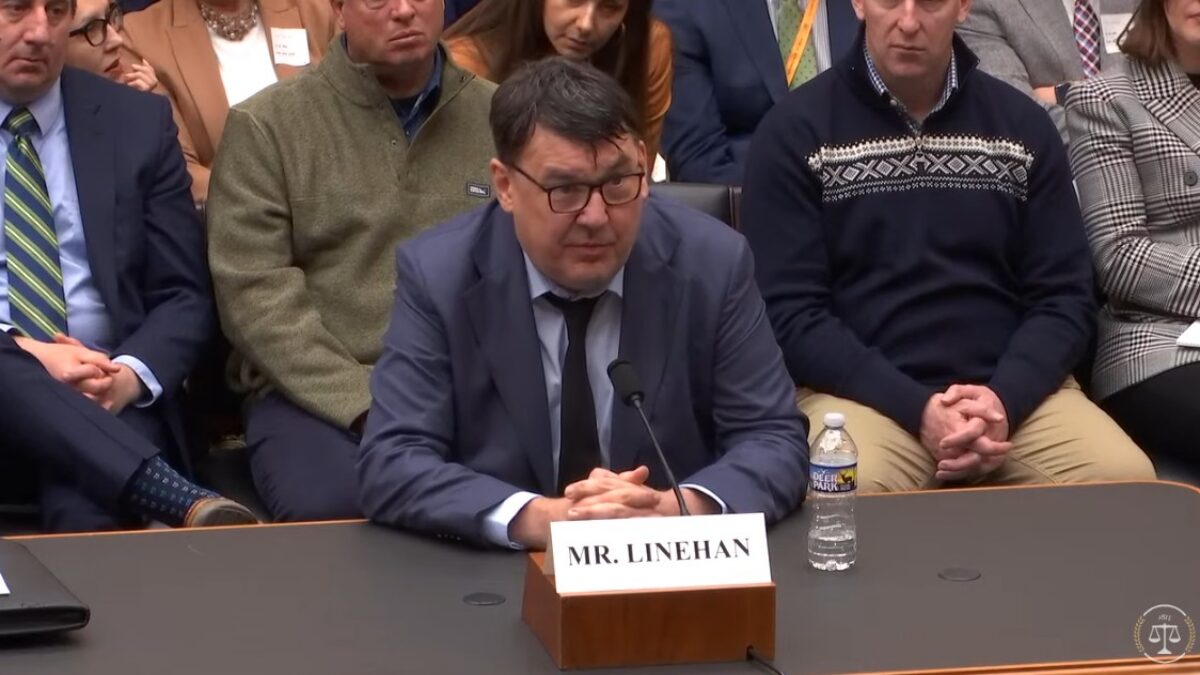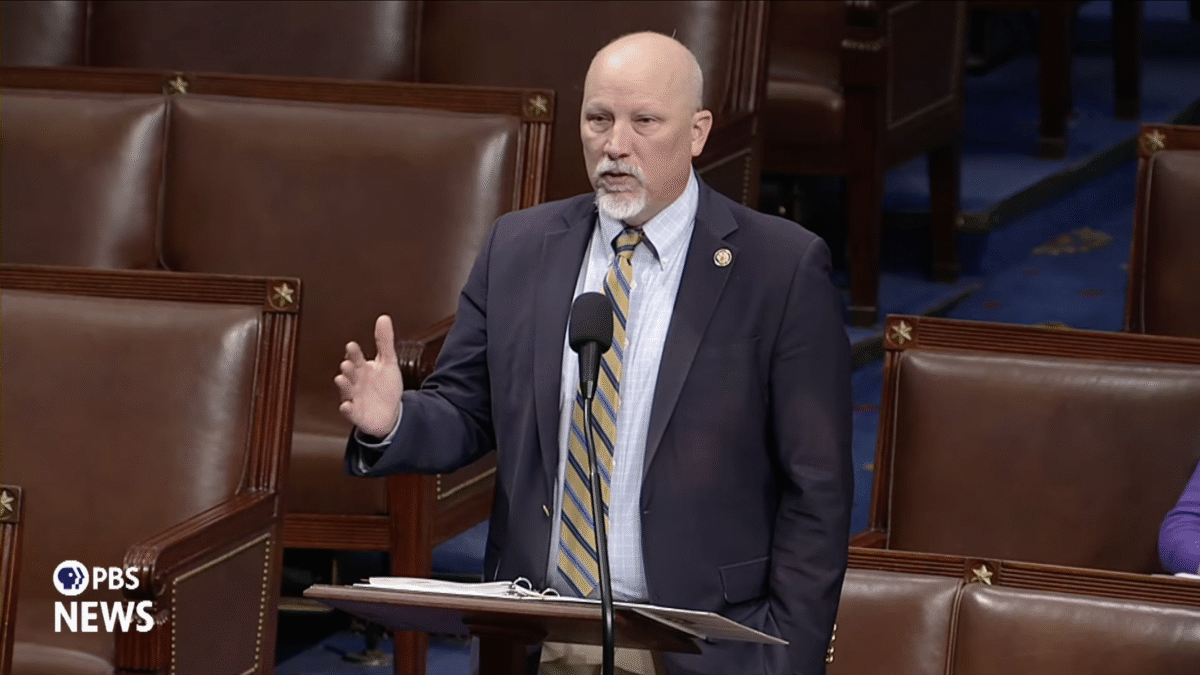Our government is preparing to monitor every word Americans say on the internet—the speech of journalists, politicians, religious organizations, advocacy groups, and even private citizens. Should those conversations conflict with the government’s viewpoint about what is in the best interests of our country and her citizens, that speech will be silenced.
While the “Twitter Files” offer a glimpse into the government’s efforts to censor disfavored viewpoints, what we have seen is nothing compared to what is planned, as the details of hundreds of federal awards lay bare. Research by The Federalist reveals our tax dollars are funding the development of artificial intelligence (AI) and machine-learning (ML) technology that will allow the government to easily discover “problematic” speech and track Americans reading or partaking in such conversations.
Then, in partnership with Big Tech, Big Business, and media outlets, the government will ensure the speech is censored, under the guise of combatting “misinformation” and “disinformation.”
AI and ML Technology Will Monitor Everything We Say and Read
The federal government has awarded more than 500-plus contracts or grants related to “misinformation” or “disinformation” since 2020. One predominant area of research pushed by the Department of Defense involves the use of AI and ML technology to monitor or listen to internet “conversations.”
Originally used as a marketing tool for businesses to track discussions about their brands and products and to track competitors, the DOD and other federal agencies are now paying for-profit public relations and communications firms to convert their technology into tools for the government to monitor speech on the internet.
The areas of the internet the companies monitor differ somewhat, and each business offers its own unique AI and ML proprietary technology, but the underlying approach and goals remain identical: The technology under development will “mine” large portions of the internet and identify conversations deemed indicative of an emerging harmful narrative, to allow the government to track those “threats” and adopt countermeasures before the messages go viral.
With AI and ML identifying in real-time the origins of supposed influence operations and how the messages spread, the government will have the ability to preempt the amplification of the speech, squelching even true reporting before the general populace has an opportunity to learn the news. To appreciate fully the danger this poses to free speech requires Americans to consider the use of that technology with these seven additional details.
1. Everything Everywhere All At Once
First, the AI and ML technology under development will mine every conceivable mode of conversation for the government. Consider, for example, the databases monitored by just a few of the companies the government is paying to develop this AI and ML technology.
PeakMetrics, the recipient of a $1.5 million award, tracks millions of news sites, blogs, global social platforms, podcasts, TV and radio, and email newsletters.
Omelas Inc., which received more than $1 million in taxpayer money, culls data from “the most influential newspapers, TV channels, government offices, militant groups, and more across a dozen social networks and messaging apps, thousands of websites, and thousands of RSS feeds.”
Alethea Group, which received a Phase I award of nearly $50,000 to develop a “machine learning tool for proactive disinformation/misinformation detection, assessment, and mitigation,” boasts it covers data sources including mainstream and “fringe” social media platforms, peer-to-peer messaging platforms, blogs and forums, state-affiliated media sites, “gray” propaganda sites, and the dark web.
Newsguard, awarded $750,000 by the DOD, offers two databases, including its unreliable reliability ratings database of thousands of news and information websites and a second database of purported hoaxes.
Primer, which scored a $3 million award to develop its technology, offers a database that looks to news and media data sources, publicly captured images, the dark web, cyberattacks shared by the general public, and classified—presumably for government clients—and unclassified data sources. Primer also partners with Flashpoint, which adds “Telegram, Reddit, Discord, and “the deep and dark web” to the databases mined.
2. We’re Talking Americans, Not Just Russian Bots
It is also important to recognize that the AI and ML technology under development will not just mine foreign or state-connected actors, but will monitor everyone’s speech. Both the government grants and the web pages of the monitoring companies confirm this reality.
We also know from the “Twitter Files” that the government and its fellow residents in the Censorship-Industrial Complex view the speech of Americans as related to foreign influence operations merely because the viewpoint matches what they claim is an adversary’s perspective. And we know the government pushed for the censorship of ordinary Americans.
By its nature, AI and ML technology has unlimited potential to flag problematic speech on any imaginable subject. Here, the past is prologue: Speech need not involve terrorism, acts of war, or even our electoral process for our government to consider it within its purview to fact-check. (It also need not be false; see point 4).
The “Twitter Files” and recent events provide Americans a glimpse into the breadth of the topics the government may deem harmful narratives worthy of censor—from elections, to vaccines, to runs on grocery stores. Underlying the government’s obsession with silencing misinformation, disinformation, and mal-information is the “Great Power Competition” perspective of foreign relations, under which China and Russia represent a constant threat to America’s power, influences, and interests.
With the government viewing foreign relations through the Great Power Competition paradigm, speech on any topic, touching even tangentially on America’s “power, influences, and interests,” will be fair game for censorship efforts.
3. The Great Power Competition Renders Everything Fair Game for Censorship
While to convincingly prove this reality requires a deeper exposé—coming soon—on the Great Power Competition’s connection to the government’s focus on misinformation, disinformation, and mal-information, last week Sen. Mark Kelly, D-Arizona, showcased the current thinking inspiring our leaders. During a conference call with the Federal Deposit and Insurance Corporation about the Silicon Valley Bank bailout, Kelly asked whether there was “a way to censor information on social media to prevent a run on the banks.”
Kelly’s question was “couched” “in a concern that foreign actors would be doing this,” Rep. Thomas Massie told Public, but, according to Massie, Kelly “didn’t suggest the censorship should be limited to foreigners or to things that were untrue.”
The move from the censorship of terrorism to the silencing of supposed interference in elections to censoring posts about “bank runs” follows naturally from the shift in foreign relations paradigms from the War on Terror to the Great Powers Competition. The latter views anything affecting American power or influence as fair game. We also saw this shift with the Department of Homeland Security’s Cybersecurity and Infrastructure Agency (CISA) proposal to consider “financial misinformation” within its purview.
The government’s censorship efforts won’t stop at supposed “financial misinformation,” however, because anything and everything journalists report and citizens discuss affects America’s “power, influence, and interest.” So, the government’s development of technology to monitor the entirety of the internet foretells a much more dangerous threat than apparent on the surface.
4. The Government Brands True Speech Misinformation
The threat to free speech stemming from the government’s monitoring of the internet is further increased by our overlords’ willingness to brand true speech “misinformation, disinformation, or mal-information” and then seek to censor it. The “Twitter Files” also exposed this reality, with our government and its lackeys seeking the censorship of true facts that might lead to “vaccine hesitancy” or reveal runs on grocery stores.
That our government would seek to silence true speech on such matters gives Americans reason to fear further censorship of true information.
5. Faulty Analysis and Biased Censors
The “Twitter Files” also revealed that censorship demands by the government, think tanks, and academic institutions relied on faulty misinformation analyses, including ones that identified innocent Americans as foreign actors. Also, many of those involved in the disinformation industry maintain left-leaning bias and a penchant for targeting conservatives.
In furthering its plans to monitor the internet for supposedly harmful narratives to silence, the government is continuing to work with biased groups, including ones that pushed faulty analyses, adding to the threat to free speech.
6. The Government’s Partners Are Poised to Censor
The government’s push to develop AI and ML technology to mine the internet is even more terrifying knowing that a Censorship Complex has already been built. The “Twitter Files” revealed the breadth and depth of the complex, with every alphabet-soup federal agency working with the social media giants and an array of think tanks and academic institutions, and with the legacy media providing an assist when censorship requests went ignored.
While Elon Musk may have exited Twitter from the group, the Censorship Complex still stands tall and ready to silence the speech of those who dare dissent. This public-private collaboration makes the government’s move to monitor the internet even more threatening to free speech.
7. Those Who Could Warn the Public or Stop the Plot Are All-In
The threat is further heightened because those with the power to warn the public and demand the government stop silencing Americans’ speech are complicit. The corrupt media’s coverage, or lack thereof, of Matt Taibbi and Michael Shellenberger’s congressional testimony on the Censorship Complex proves this point. So too does the Democrats’ pathetic performance during the hearings, when they exposed themselves as enemies of free speech.
With Democrats, the legacy media, and many Republicans all in on the government’s efforts to censor misinformation and disinformation, it will be extremely difficult for the public to recognize the risks free speech faces—especially since those trying to sound the alarm have already been falsely branded purveyors of disinformation.
A chance remains, though, that enough ordinary Americans will hear the message before it is too late and demand Congress close the Censorship-Industrial Complex.









